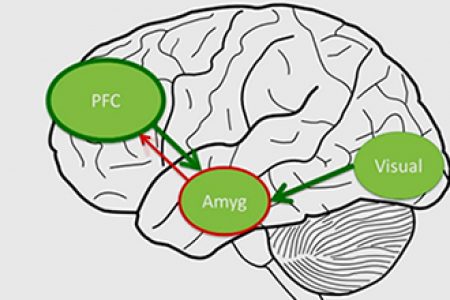To spy or not to spy? Bridging the gap between politics and clinical cognitive neuroscience
Suddenly the whole universe was shocked: “We are being spied upon!” But why? If countries and agencies spy on a macro level due to fear, why do people spy on a micro level? How does the brain function under such circumstances?
The big question
And suddenly the whole universe was shocked: “We are being spied upon!” Documents leaked by the former National Security Agency (NSA ) analyst Edward Snowden suggest that the NSA had access to information coming from countries all over the world. The virtual eavesdropping targeted all types of citizens: US enemies, allies, aliens, comrades, politicians, ambassadors, simple citizens, Germans, Italians, Greeks, Dutchmen, Spanish, Mexicans, Brazilians, Saudi Arabians, Egyptians -- the list is endless…
Petitions started coming in great numbers from several countries, and politicians (including America’s ally, the German Chancellor Angela Merkel) expressed their dissatisfaction and requested a thorough investigation of the topic. A big question was raised all over the universe: “Why? Why do US agencies spy on us?” The answer came from Barack Obama’s lips (who declared that he wasn't aware of the extent of the surveillance): “For national security” said Obama , “In order to secure safety for the American citizens”. In the same context the US Intelligence chief James Clapper stated that “knowing what foreign leaders were thinking has always been critical to US policy making”.
A simple (or simplistic?) answer
Let’s come back to our question “Why do US agencies spy on us?” On the basis of the declarations above, and if we do not take into account other possible reasons (such as eagerness for power and control) the answer seems simple: it seems that the US were spying upon citizens and politicians for safety and security reasons. The US is surrounded by a threatening environment, thus spying is the reaction to a feeling of insecurity and fear of a possible attack.
I am wondering whether and how this differs from the reasons that would motivate individuals to spy. If countries, agencies and politicians spy on a macro level, why do people spy on a micro level? Does politics meet psychology when it comes to spying? Do fear, a threatening environment, and insecurity play a role? And if so, how does the brain function under such circumstances and what could be a possible solution for such behaviors?
Different individuals spy for different reasons, but fear and insecurity could indeed play a key role in such behaviors because spying has a clear advantage in evolutionary terms: it ensures control of rivals and allows preparation and defense against possible attacks; therefore, it increases the chances of survival.
The neuronal mechanisms of fear
What happens in the brain when we are in a threatening environment? When our senses (vision, smell etc.) ‘detect’ a threat, the ‘fear brain network’ is activated. This network consists of brain regions including the thalamus (involved in sensory processing), the hippocampus (involved in contextual fear), the amygdala (involved in processing, acquisition, and expression of fear), the insula ( involved in introceptive awareness of body states, pain, and empathy), and brain stem regions such as the periaqueductal gray (involved in fear responses such as freezing) and the prefrontal cortex (involved in fear inhibition and fear extinction). The HPA (hypothalamic-pituitary-adrenal) axis is activated, resulting in autonomic nervous system (ANS) responses and hormonal secretion. Neurotransmitters and hormones such as noradrenaline (mainly produced by the brainstem region locus coeruleus), adrenaline, cortisol, glucocorticoids etc. are secreted and prepare our body for a ‘fight or flight’ response, in which we decide whether to run away from the threat or become aggressive and defend ourselves).
It becomes obvious that our brain is hard-wired in order to react fast and protect ourselves from the danger. In short, “we are born and equipped to survive,” and one could argue that fear is a primitive, ‘animal’ instinct. Indeed, the fear network is similar all over the species, from rats via monkeys to humans.
What are the possible solutions?
In case of fear our primate instinct pushes us to defend ourselves as fast as possible and we react automatically, neglecting rational reasoning. Whether we engage in ethical or non-ethical reactions (such as spying, fight, or flight) is of secondary importance; the first concern is to ensure survival.
If we are “hard-wired” to react like this, is there any possible solution to spying? Is there no hope? Yes, there certainly is! In such cases we just need to calm down and take our time, instead of overreacting. We need to inhibit our fear and instinctive reactions, and see if our fear is justified, and to what extent. We need time to think what alternative tactics we have to protect ourselves, and find rational, ethical ways to react. In brain jargon one would say that we just need to increase prefrontal cortex activity and inhibit regions such as the amygdala. But how can we do this?
In an experimental setup and in fMRI (functional Magnetic Resonance Imaging) the inhibition of fear is studied. Increase of PFC control over the amygdala occurs in tasks such as fear extinction. There, the fear stimulus is presented several times in a safe environment until the individual learns that the stimulus is now safe. In real life, “extinction of fear” occurs via psychotherapy. Psychotherapeutic approaches such as Cognitive Behavioral Therapy are based on fear extinction, and have proved very effective in fear- and anxiety-related disorders such as phobias, Post Traumatic Stress Disorder (PTSD) etc.
In a nutshell, the answer is: hold your horses and listen to ratio. Try to take your time in order to calm down. This will help you to control and inhibit primitive instincts such as fear, and will facilitate flexible thinking and coming up with more fruitful, ethical, healthy, and efficient reactions than rushing into spying or aggression.





